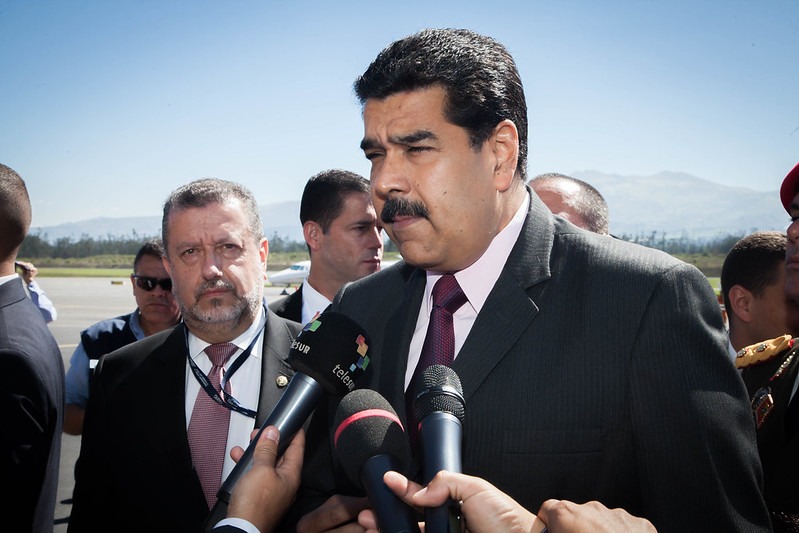Venezuela is considered one of the five countries in the world where the State has developed greater capabilities to execute online propaganda operations. The Venezuelan State has been carrying out cyberbullying operations, using trolls since at least 2009 and automated operations to drive opinion trends since 2010. The COVID-19 pandemic has been another territory for information warfare operations carried out by the Venezuelan pro-government communication apparatus.
In the wake of the COVID-19 pandemic, the Venezuelan State continued its systematic violation practices of citizens’ civil and political rights under the state of alarm, specifically regarding health personnel, the sick, migrants and journalists. Doctors and nurses were victims of harassment for denouncing the collapse of the public health system. Even in private communications, such as their WhatsApp statuses or voice notes originally intended for friends, which came to circulate virally.
One of the emblematic cases is the detention of Julio Molina, a 72-year-old doctor, accused of causing panic and stress in the community and of inciting hatred. This arbitrary detention was done alleging the Law against Hate, after Molina denounced that the Núñez Tovar Hospital, which is located in the east of the country, had no medical supplies to deal with the emergency.
It would seem that campaigns aimed at promoting information disorder concern only the digital ecosystem. However, in the Venezuelan context there’s evidence of the existence of information-disruption strategies using traditional media since 2002 at least. The information disorder associated with COVID-19, open-signal television, specifically the channels under the control of the Venezuelan State, have been frequently used for the introduction of misleading, manipulated or propagandistic content.
The second channel of propagation of this type of content from power was Twitter, using the public administration’s official profiles. The third channel was WhatsApp, especially with the use of voice notes that simulated leaks. And the fourth channel was the government channels in Telegram, through which operational orders are sent daily to position official hashtags. Finally, the official hashtags have the support of tens of thousands of users of the Patria System, which are activated as patriotic tweeters to opt for the dollar-cent bonuses that are distributed among those who use the tags of the day.
On Twitter, there’s a pattern of disinformation operations via comments or replies to tweets made by popular journalists, using inauthentic accounts. There are also fake accounts that often use pseudonyms and their profile pictures appear to be generated by artificial intelligence. There is also evidence of the use of troll farms and astroturfing operations, which simulate organic opinions of citizens or activists, but in reality respond to propagandistic lines aimed at presenting that the official management of the epidemic is being efficient.
Disinformation operations start with rumors or leaks in WhatsApp, generating polarized debates in Twitter. Then, they end in denials in the official communication channels, as in the case of the biased news about the installation of crematory ovens in the parking lot of the El Poliedro entertainment center, in Caracas.
Among the most important informative disorders seen in Venezuela amid the pandemic has been the labeling of returning Venezuelan migrants as “biological weapons” against the country. Nicolás Maduro and other officials went so far as to say in official TV broadcasts that returned migrants are “biological weapons” introduced in Venezuela by the Colombian President, Iván Duque.
Last year, on May 20, Nicolás Maduro publicly accused the Colombian government of “contaminating” Venezuela with busloads of infected people. Maduro’s statement marked the beginning of a government policy to stigmatize migrants. Official orders were to denounce people who had returned via email, mark houses where migrants were suspected to be present and to concentrate migrants in confinement centers. In addition, an incriminating official discourse of bioterrorism was maintained against Colombia and Brazil, countries accused of infiltrating the virus through their borders with Venezuela.
The negative or positive evaluation of vaccines—according to their country of origin or development and not according to scientific criteria—has been another constant in the last six months. The arrival of the first batch of Russian Sputnik vaccines to Venezuela was celebrated with the “hashtag of the day” #SputnikVEnVenezuela, disseminated by the official communications apparatus, including the official party PSUV’s hierarchs, military structures including the Operational Zones of Integral Defense (ZODI) and the Strategic Regions of Integral Defense (REDI).
Conversely, in March this year, the pro-government communication apparatus deployed a biased information campaign to justify its refusal to allow the entry of AstraZeneca’s vaccine into the country, which the pro-democracy National Assembly had nonetheless managed to obtain through the COVAX mechanism of the Pan-American Health Organization.
The official communication apparatus, with Nicolás Maduro as spokesman, has also been dedicated to disseminate pseudoscientific content in a country with low access to diagnostics and treatment services for COVID-19. In the first cycle of contagion, officials intensively promoted the use of a homemade beverage made with the malojillo or hierbaluisa plants as main ingredients. They would allegedly cure COVID-19, according to officials. Moreover, Nicolás Maduro promoted Sirio Quintero’s formula on national broadcast as the cure against Covid-19. A formula allegedly composed of six ingredients: hierbaluisa, ginger, black pepper, lemon peel, lemon juice, honey and elderberry.
Earlier this year, in January, the official communications apparatus announced the Carvativir as the miracle cure for COVID-19. These drops, whose active ingredient is a phytochemical compound known as isothymol, is widely used as an oral disinfectant and in antiparasitic drugs. For the commercial launch of Carvativir, the government combined strategies, using pseudoscience—with the use of a fake scientific article—and appealing to naturist markets and religious beliefs, such as the “miraculous drops” of José Gregorio Hernández, in reference to the Venezuelan doctor in the process of canonization by the Catholic Church.
*Most of the data referred to in this article come from the study: Desórdenes informativos propagados en Venezuela, vía WhatsApp y redes sociales, en medio de la pandemia de COVID-19,( https://covid.infodesorden.org/) conducted by Puyosa; Madriz; Alvarado; Andueza; Córdova; & Azpúrua (2021)
Translation from Spanish to English by Ricardo Aceves











